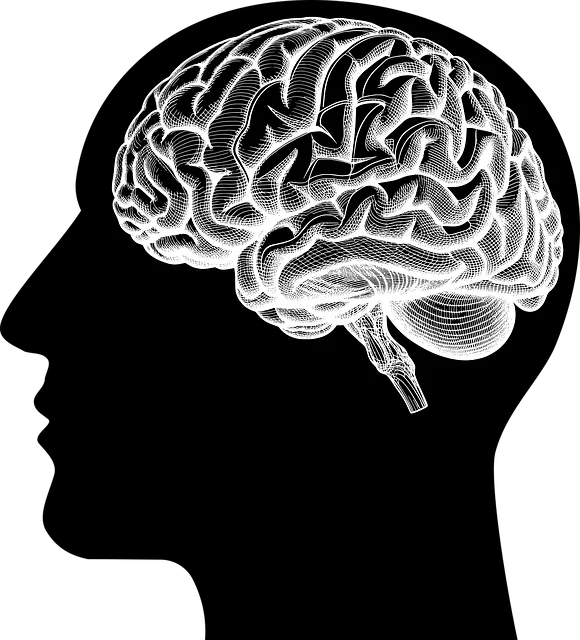Litleton Kaiser Permanente Psychiatry pioneered a holistic mental health care model that goes beyond symptom treatment, focusing on resilience and purpose-building. This approach integrates medical expertise with personalized wellness coaching, empowering patients through evidence-based practices like CBT, mindfulness, and goal-setting. Key elements include structured interventions, emotional healing processes, and continuous program evaluation based on current research. This collaborative model fosters community, enhances well-being, and ensures the program's effectiveness in addressing diverse mental health needs.
Mental wellness coaching programs have emerged as a transformative approach to supporting individuals in navigating modern life’s challenges. This article explores the development of such programs, focusing on the unique collaboration between psychiatry and coaches at Littleton Kaiser Permanente. We delve into best practices for designing effective coaching interventions, offering a step-by-step guide to implementation and evaluation. By examining these strategies, we aim to enhance holistic mental health care, addressing contemporary needs.
- Understanding Mental Health and Wellness in the Contemporary Setting
- The Role of Psychiatry and Coaches in Collaborating for Holistic Care at Littleton Kaiser Permanente
- Designing Effective Coaching Programs: Principles and Best Practices
- Implementing and Evaluating Mental Wellness Coaching Programs: A Step-by-Step Guide
Understanding Mental Health and Wellness in the Contemporary Setting

In the contemporary setting, understanding mental health and wellness goes beyond merely treating symptoms. It encompasses a holistic approach that considers the interconnectedness of physical, emotional, and cognitive aspects, especially in communities like Littleton Kaiser Permanente psychiatry areas. This shift is crucial as it recognizes that mental wellness is not just the absence of illness but a state of thriving where individuals can navigate life’s challenges with resilience and purpose. The focus is on fostering emotional healing processes and promoting Mind Over Matter principles to prevent or manage conditions such as depression, ensuring a proactive and comprehensive approach to well-being.
This evolving perspective influences the development of mental wellness coaching programs that extend beyond traditional therapy models. By integrating evidence-based practices tailored to individual needs, these programs empower individuals to take charge of their mental health. Through mindfulness techniques, cognitive reframing, and goal-setting, participants learn to manage stress, enhance self-awareness, and cultivate positive thinking patterns—essential tools for maintaining emotional balance in today’s fast-paced world.
The Role of Psychiatry and Coaches in Collaborating for Holistic Care at Littleton Kaiser Permanente

At Littleton Kaiser Permanente, a unique collaboration between psychiatrists and mental wellness coaches is transforming patient care. This partnership offers a holistic approach to mental health treatment, addressing not just symptoms but also the underlying factors contributing to an individual’s well-being. Psychiatrists, with their medical expertise, provide prescription medication and specialized therapy when needed, while coaches offer guidance tailored to each patient’s unique journey.
Through Mental Wellness Journaling Exercise and confidence-boosting techniques, coaches empower patients to take an active role in their healing process. Additionally, they assist in developing Risk Management Planning for Mental Health Professionals, ensuring a safe and supportive environment for both clients and practitioners. This collaborative model fosters a sense of community and empowerment, enhancing the overall effectiveness of mental health care at Littleton Kaiser Permanente.
Designing Effective Coaching Programs: Principles and Best Practices

Designing effective coaching programs requires a structured approach that aligns with evidence-based practices. At Kaiser Permanente Psychiatry in Littleton, experts emphasize the importance of tailored interventions to address individual needs. A successful coaching program should focus on clear objectives, utilizing techniques like cognitive behavioral therapy (CBT) for stress management and mindfulness practices to enhance mental wellness.
Incorporating self-esteem improvement strategies is crucial, encouraging clients to challenge negative thoughts and build resilience. The best practices involve creating a safe and non-judgmental space, active listening, and providing practical tools and resources. Regular feedback loops allow coaches to adapt their methods, ensuring the program remains effective and aligned with the latest research in mental health care.
Implementing and Evaluating Mental Wellness Coaching Programs: A Step-by-Step Guide

Implementing and evaluating mental wellness coaching programs is a multifaceted process that requires careful planning and strategic execution. The first step involves defining clear objectives aligned with individual and organizational goals, such as improving employee well-being or enhancing patient outcomes at Littleton Kaiser Permanente psychiatry. This includes assessing current mental health resources and identifying areas where coaching can add value.
Next, design tailored coaching programs focusing on essential aspects like emotional healing processes, resilience building, and effective communication skills. Ensure these programs are evidence-based and aligned with best practices in mental health care. Implement risk management planning for mental health professionals to create a safe, supportive environment for both coaches and clients. Regularly evaluate program effectiveness through qualitative and quantitative methods, gauging participant satisfaction and tracking key performance indicators (KPIs) related to mental wellness improvements. This iterative approach allows for continuous refinement, ensuring the program remains impactful and relevant in addressing evolving mental health needs.
Mental wellness coaching programs, as illustrated by the collaborative efforts at Littleton Kaiser Permanente between psychiatry and coaches, offer a promising approach to holistic mental health care. By integrating evidence-based practices with client-centered coaching, these programs can significantly improve access to support and enhance overall well-being. As we navigate the complex landscape of modern mental health, adopting best practices outlined in this guide, including effective design principles and step-by-step implementation strategies, will be crucial in fostering resilient individuals and communities. The collaboration between psychiatry and coaching professionals at Littleton Kaiser Permanente serves as a testament to the power of integrating traditional healthcare with innovative wellness strategies.






